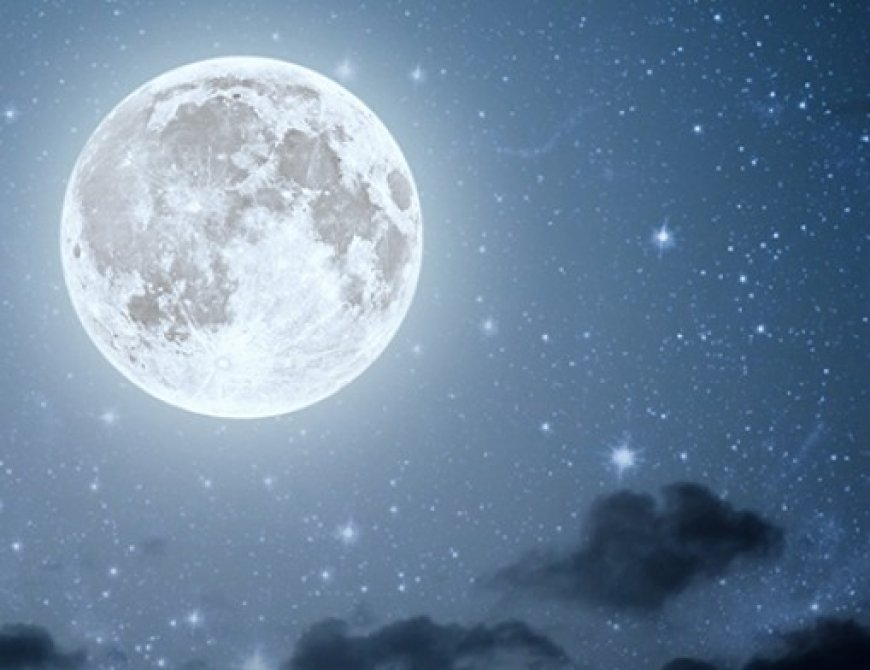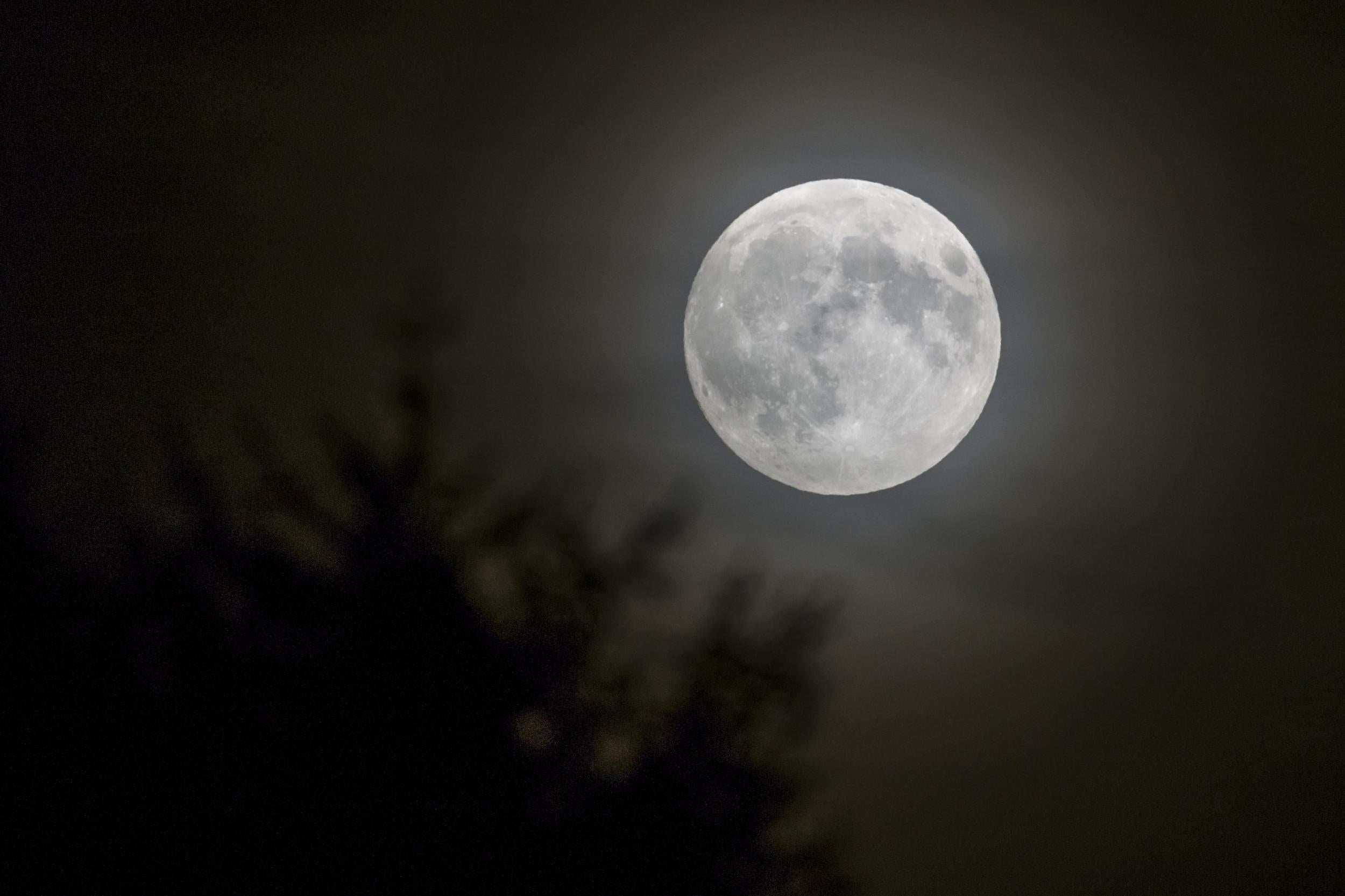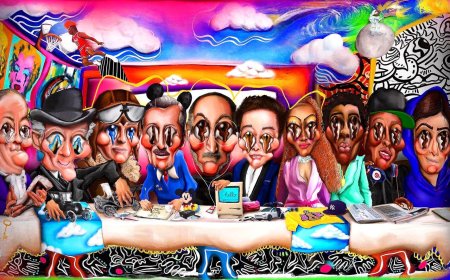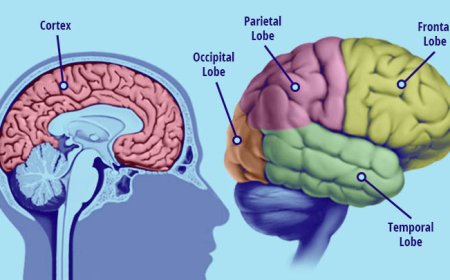Does the Full Moon Affect Human Behavior Myth vs Reality
Does the full moon really affect human behavior? Explore the myths and scientific reality behind the full moon's influence on mood, sleep, and human actions. Uncover the truth behind this age-old belief.

The belief that the full moon affects human behavior is a long-standing topic of in- trigue, rooted in historical folklore, cultural narratives, and psychological phenomena. Many societies have traditionally associated the full moon with heightened emo- tions, erratic actions, and supernatural occurrences, with legends suggesting that it can provoke violence and emotional disturbances.[1][2] These cultural beliefs have persisted over time, intertwining with various aspects of life, including agricultural practices and psychological interpretations, highlighting the moon's significant role in human identity and behavior.
Despite widespread beliefs, scientific research has largely debunked the notion that lunar phases exert substantial influence on human behavior. Investigations into areas such as sleep patterns, crime rates, and psychological admissions reveal inconsistent findings, with many studies indicating no meaningful correlation between the full moon and these factors.[3][4] Notable research, including a comprehensive analysis of over 23,000 crimes, found no relationship between lunar cycles and aggressive behavior, suggesting that popular beliefs are more reflective of cultural narratives than empirical reality.[4][5]
The Full Moon
Moreover, psychological expectations and the placebo effect may contribute to perceived lunar influences, as individuals often attribute mood changes to lunar phases, reinforcing the myths surrounding them.[6][7] Cognitive biases, including confirmation bias, further perpetuate these beliefs, causing individuals to selectively remember events that align with their expectations while disregarding contrary evi- dence.[7][8] This interplay of belief and perception complicates the understanding of any potential lunar effects on behavior, emphasizing the importance of distinguishing between myth and reality.
Ultimately, the debate over whether the full moon impacts human behavior remains a blend of cultural symbolism and scientific skepticism. While historical and anecdotal evidence may suggest a connection, rigorous scientific inquiry continues to challenge the validity of these claims, revealing a complex relationship shaped by psychological factors and cultural interpretations rather than definitive lunar influence.
Historical Perspectives
Throughout history, the full moon has been a source of fascination and speculation, leading to various beliefs about its influence on human behavior. Many cultures have imbued the full moon with symbolic meaning, often associating it with transformation and emotional intensity. For example, in European folklore, the full moon is commonly linked to the emergence of supernatural beings, such as werewolves, and has been viewed as a time when madness and erratic behavior might increase among individuals[1]. This connection between the lunar cycle and human behavior reflects deeper cultural anxieties and mythologies.
Folklore and Superstitions
Many societies have developed folklore that ties the full moon to unusual behaviors. In various traditions, it has been believed that the full moon can provoke heightened emotions and irrational actions. For instance, certain legends suggest that individuals may become more prone to violence or emotional disturbances during this phase, a belief that persists in modern discourse around lunar effects on behavior[2]. These narratives serve not only to explain observed phenomena but also to provide a cultural framework for understanding human psychology.
Agricultural Practices
The full moon has also influenced agricultural practices throughout history. Farmers have historically used the lunar phases to determine optimal planting and harvesting times, with the full moon often seen as a peak for growth and yield[9]. The Farmer's Almanac remains a popular resource for these practices, highlighting the enduring significance of lunar cycles in agricultural communities. This connection between the moon and agriculture illustrates a practical application of lunar beliefs, merging superstition with the natural rhythms of the environment.
 Full moon
Full moon
Indigenous Beliefs
Indigenous cultures around the world have unique perspectives on the full moon and its effects. Many Indigenous narratives include tales where the moon plays a crucial role in the cycles of life, often reflecting the values and spiritual beliefs of the community. For example, some Native American tribes possess legends that portray the moon as a central figure in creation stories, further emphasizing its importance in cultural identity and tradition[2]. These narratives highlight the deep-rooted signifi- cance attributed to the full moon, extending beyond mere superstition to encompass broader cultural and spiritual dimensions.
Scientific Research
Research into the potential effects of the full moon on human behavior has yielded mixed results, prompting both interest and skepticism within the scientific community.
Studies on Sleep Patterns
Recent investigations have explored the relationship between lunar phases and sleep quality. A study led by sleep researcher Horacio de la Iglesia at the University of Washington monitored sleep patterns in diverse populations, including Indigenous Toba/Qom communities in rural Argentina and university students, using activ-
ity-tracking devices. The findings suggested a correlation between sleep patterns and the lunar cycle, challenging previous dismissals of such connections[3]. However, there are calls for more rigorous methodologies, including prospective studies, to validate these results[10].
Impact on Hormonal Balance and Behavior
Other research has examined how lunar phases may influence hormonal changes and behavior. Some animal studies suggest that moon changes can lead to hormonal imbalances in humans, potentially affecting behavior[4]. However, studies analyzing large datasets, such as crime rates and birth statistics, have largely found no significant correlations between these factors and lunar phases. For instance, a comprehensive analysis of 23,142 crimes indicated no association with the lunar cycle[4]. Similarly, an examination of over 564,000 birth records found no variation in birth rates across different lunar phases[4].
Lunar Effects on the Menstrual Cycle
The relationship between the lunar cycle and the menstrual cycle has also been scrutinized. While some earlier studies suggested a link, more recent investigations involving large sample sizes found no synchronous relationship between menstrual onset and lunar phases[11]. A study that examined 826 women showed that men- struation onset around the new moon was only marginally higher than during other lunar phases, indicating little support for the lunar influence on menstrual cycles[11].
Psychological Factors
The relationship between the full moon and human behavior is deeply entwined with psychological phenomena, including cognitive performance, emotional responses, and cultural beliefs. Research on the effects of lunar cycles on cognitive skills, such as decision-making and problem-solving, has revealed varying outcomes. Some studies suggest that certain lunar phases, particularly the full moon, may be linked to increased impulsivity, thereby affecting decision-making processes[12]. However, the findings remain inconclusive and often limited by small sample sizes and method- ological challenges.
Empirical Studies and Discrepancies
Numerous empirical studies have explored the psychological impacts of lunar cycles by measuring factors like stress levels, anxiety, and cognitive flexibility at different moon phases. While some research indicates minimal but statistically significant effects, other studies report no correlation at all. This inconsistency highlights the complexity of human psychology and the difficulty of isolating the moon's cycle
as a definitive influence on behavior[12][6]. A comprehensive review published in 1985 analyzed over 100 studies and concluded that there is no reliable evidence for lunar effects on human behavior, a finding that has been supported by more recent research[6].
Psychological Expectations and Self-Fulfilling Prophecies
Beliefs surrounding the full moon can also create psychological expectations that lead to self-fulfilling prophecies. The prevalent belief in lunar effects may cause individuals to attribute their mood changes to the moon, even when other factors are at play. This expectation can subtly influence behavior, further complicating
The Placebo Effect and the Power of Belief
The placebo effect is another psychological factor that may play a role in perceived lunar influences. When individuals believe that the full moon affects their mood or behavior, this belief can lead to changes in their emotional states, regardless of any actual lunar impact[7]. The power of belief is significant; it has been shown to influence mental and emotional health outcomes profoundly, further complicating the understanding of lunar effects[7]. As people often make connections between their experiences and lunar phases, the potential for illusory correlations can lead them to perceive effects that may not exist in reality[7].
Cultural Context and Emotional Patterns
Cultural interpretations of the moon also contribute to the psychological landscape surrounding lunar phases. Various cultures have historically ascribed symbolic mean- ings to the moon, linking it to emotional and psychological states. For example, some individuals report heightened emotions, creativity, or motivation during specific lunar phases, and tracking emotional patterns in relation to the lunar calendar is
a common practice for many[13]. Such cultural beliefs and personal practices can shape individuals' emotional experiences, regardless of the scientific validity of lunar effects[13][2].
Case Studies
Medical Admissions and Psychological Issues
A study published in the journal examined nearly 800 patients who presented with unexplained chest pains at two Montreal hospitals over a three-year period.
Researchers investigated whether there was any correlation between these patients' psychological symptoms and lunar phases. After thorough evaluations, many pa- tients were found to suffer from anxiety, panic attacks, and mood disorders, yet no significant seasonal or lunar phase patterns were identified in their psychological symptoms[14][15]. The study aimed to challenge the widely held belief among some healthcare professionals that the full moon influences psychological issues, empha- sizing that such misconceptions could impact clinical judgments during full moon phases[15].
Criminal Behavior
A comprehensive study analyzing 911 calls over a five-year period sought to deter- mine the effects of lunar phases on criminal activity. By comparing incidents of violent crimes, including assaults and disturbances, with the corresponding lunar phases
Emergency Room Visits
In a more nuanced examination, Portsmouth Regional Hospital discovered conflicting evidence regarding the influence of lunar phases on emergency room visits. A study of 5,400 patients indicated a slight increase in psychiatric emergency visits during full moons, particularly at the beginning and end of moon cycles, which were associated with heightened severe illnesses and aggressive behaviors[16]. However, this finding contrasts with other studies that report no significant correlation, highlighting the complexity of the issue.
Sleep Patterns
Research focused on sleep quality and lunar phases demonstrated that the full moon may affect sleep differently based on sex. A sleep analysis showed a notable decrease in deep sleep and overall sleep duration during the full moon phase, suggesting that lunar rhythms can indeed interfere with sleep cycles[4]. This contrasts with the general belief that lunar phases cause behavioral disturbances, as the hormonal changes linked to the moon primarily impacted sleep quality rather than mood or aggressive behavior.
Public Perception
The belief that the full moon significantly impacts human behavior is deeply rooted in folklore and cultural narratives. Despite extensive research debunking these notions, many people continue to subscribe to the myth that lunar phases influence various aspects of life, including sleep patterns, crime rates, and psychiatric hospital admis- sions[5][8].
The Misconception and Survey Results
A research project conducted by students in Dr. Emily Stark’s Social Psychology course at Minnesota State University revealed public beliefs surrounding lunar ef- fects. The survey indicated that a considerable portion of respondents believed in the moon's influence on behavior. For instance, 33.82% agreed that a full moon negatively affects behavior, while 57.35% believed crime rates and unusual animal behavior increase during this lunar phase[5]. Notably, a study utilizing hospital data found no correlation between the full moon and psychiatric admissions, reinforcing the idea that such beliefs are unfounded[5].
Psychological Influences on Belief
The persistence of lunar myths can be partially attributed to cognitive biases such as illusory correlation and confirmation bias. Individuals often perceive connections
Cultural Reinforcement
Cultural narratives surrounding the moon, including the term “lunatic,” highlight his- torical beliefs linking lunar phases to insanity. These stories are deeply ingrained in societal consciousness and are often reinforced through literature and media,
which continue to perpetuate the myth of the moon's influence[8]. Moreover, selective attention plays a role, as individuals are more likely to notice unusual events during a full moon, reinforcing their belief in its effects[18].
References
[1] : Celestial Stories: Exploring Cultural Beliefs About Moon Phases and ...
[2] : Moon Mythology & Folklore: Lunar Legends - Universe Unriddled
[3] : The Significance of a Full Moon: Beauty, Symbolism, and Folklore - Medium
[4] : Can the moon influence human health? Surprising new research suggests ...
[5] : Phased Out: Human Sleep Patterns Linked to Full Moon - Scientific American
[6] : Debunked: How Does the Moon Affect Human Health & Behavior?
[7] : Does the moon affect our mood or actions? - Frontiers
[8] : Dancing Under the Moon: Lunar Cycles and Their Potential Influence on ...
[9] : Full Moon's Emotional Impact: Science Meets Belief
[10] : Does the Moon Affect Humans? - Cleveland Clinic Health Essentials
[11] : What Does The Moon Symbolize In Different Cultures And Personal ...
[12] : The full moon doesn't make you crazy, study confirms - NBC News
[13] : Obvious But True: Full Moons Do Not Drive People Crazy
[14] : Misconceptions: The Effect of the Full Moon — Communicating ...
[15] : Full moon days increase hospital visits, according to new study ...
[16] : Exploring Lunar Influence: Do Moon Phases Really Affect Human Behavior ...










































